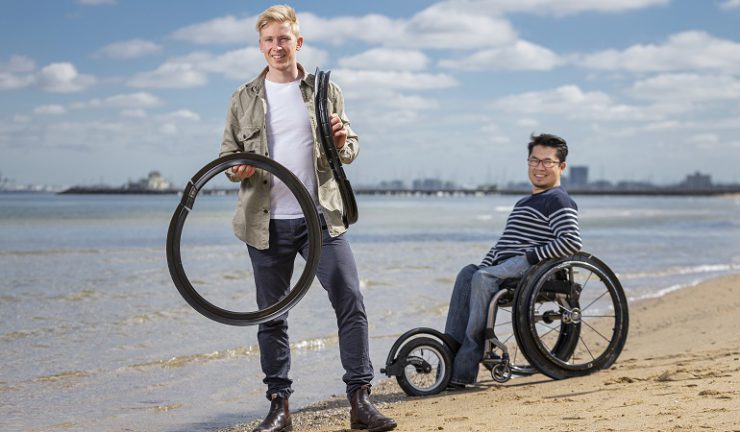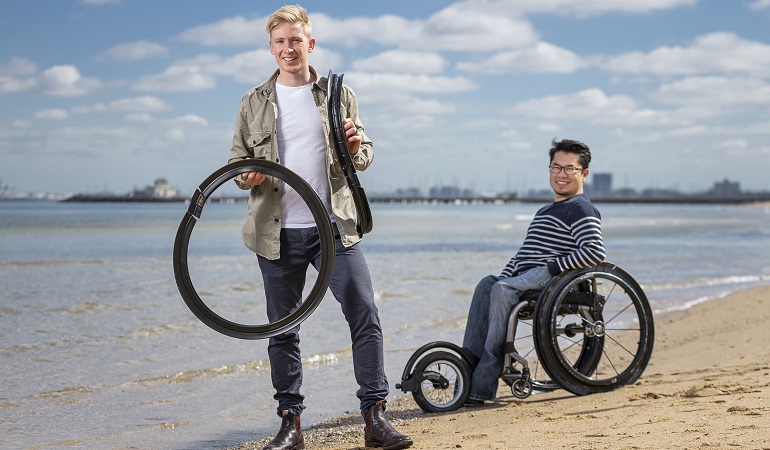In national competition.
RMIT University student, Ryan Tilley, has been named this year’s winner of the national James Dyson Award with his entry, Gecko Traxx – a portable and affordable manual wheelchair accessory that enables off-road access on sand, snow, soft grass and gravel. Prize money is $3,200 for his win.
One of Ryan’s close friends and long-term wheelchair user would often get stuck in the sand when visiting beaches. This motivated Ryan to identify a problem that needed to be addressed.
“I knew there had to be a better way for him to manoeuvre around off-road tracks. Current off-road wheelchairs and accessories are either expensive or bulky. I wanted to build something that was far more accessible and offered the user a more independent experience.
“I am so excited for my design to be recognised by the James Dyson Award. I hope to bring my designs to life and that Gecko Traxx could one day give wheelchair users the opportunity to better explore our beautiful country without restrictions.”

How does Gecko Traxx work? The unique tyre cross-section is unobtrusive when fitted to the wheelchair and expands when in contact with the ground, increasing the contact surface area by three times when needed. Its simple, integrated clip can be used even with limited dexterity and enables the individual to fit the tyres to their wheelchair independently without the need to transfer out of the wheelchair.
There were also two national runners up, whose designs were commended by judges: Eddy, designed by University of New South Wales (UNSW) student, Alexander Ghent and Continuity, designed by UNSW student, Frederique Sunstrum.
Eddy is a retrofittable filter system for washing-machines, designed to stop microplastic pollution from synthetic clothes from reaching the ocean. Continuity is an ear device for diabetics that monitors glucose levels and notifies the user when to take their insulin, which is admitted through a handheld oral device.
All three entries will progress to the international stage of the James Dyson Award with a winning prize of $53,000 for the individual and $8,500 for their university. Their entries will be judged by a panel of Dyson engineers who will select an international shortlist of 20 entries. The top 20 projects are then reviewed by Sir James Dyson, who selects the international winner.

